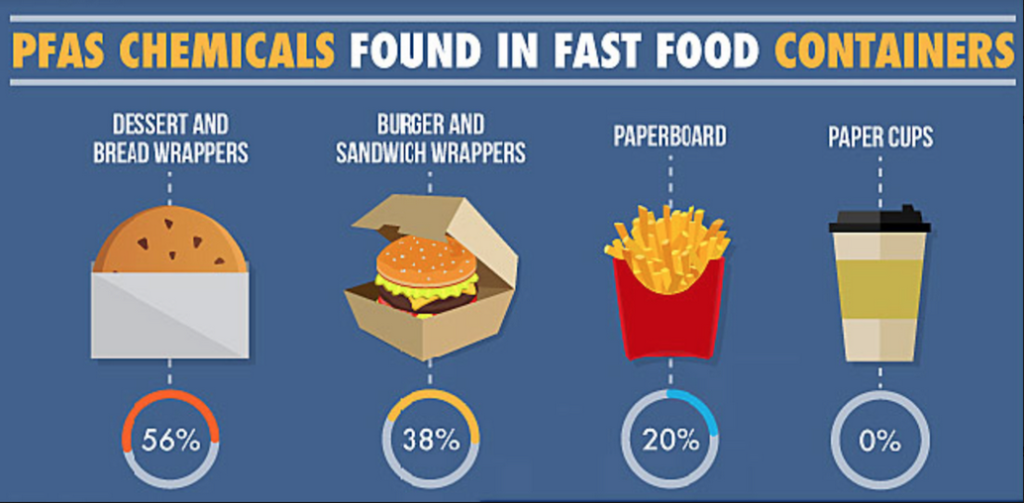Fast food vs. Fast food wrappers: Which is worse?
By Susan Burke March
In my previous column about cooking myths (microwave ovens, food-grade aluminum pots and pans and containers are safe, and cooking with Teflon nonstick pans does not “give you cancer”), a reader commented that some of the chemicals used in producing Teflon, including perfluoroalkyl substances (PFASs) are “highly persistent and degrade slowly, if at all, under environmental conditions.”
substances (PFASs) are “highly persistent and degrade slowly, if at all, under environmental conditions.”
Therefore, I added this information to my column. I had noted that although cooking with Teflon is safe when used as directed (not overheating the pan is critical) there are alternative nonstick cookware options that don’t contain PFAs.
But just recently a study published in PLOS Medicine found that exposure to these chemicals come also from food wrappers. Manufacturers use PFASs for their oil- and water-repellant properties. As reported in Time Health, levels of PFASs in the blood are linked to weight regain in people, especially women, after losing weight. People with higher levels of PFAs had lower resting metabolic rate, which means burning fewer calories throughout the day and night.

Why are women more prone to weight gain? Senior author Qi Sun, assistant professor in the department of Nutrition at Harvard T.H. Chan School of Public Health theorizes that “PFAs can interfere with estrogen metabolism and functioning, so this may be why we see this observation mostly in women.”
The Takeaway
PFAS are used in carpeting, clothes, upholstery, food paper wrappings, fire-fighting foams, and metal plating (nonstick cookware). You can reduce exposure by being a careful consumer, avoid wrapped fast foods, eat fresh, whole foods, use containers like glass, ceramic, and stainless steel, and use wooden cooking utensils, not plastics.
To read the Journal PLOS study, click here.
To read the report in Time Health Newsletter, click here.


















